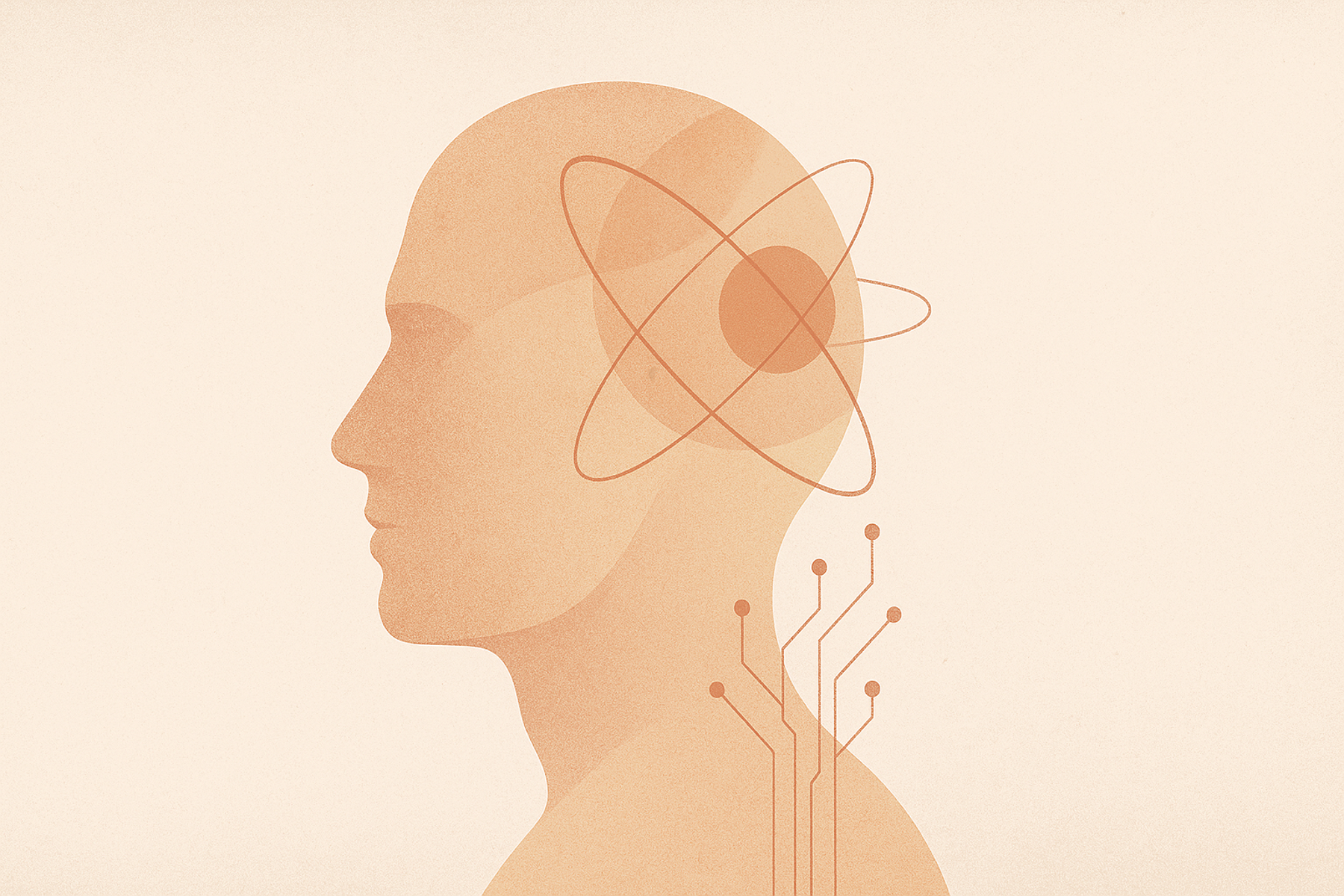I’ve been fascinated by a topic for a long time now – something that feels like it’s just around the corner. A technology that could reshape our entire world. One that might redefine what “private” means altogether. I’m talking about quantum computing.
Although it’s still in the early stages of development, the progress is accelerating – and its potential impact is already starting to reshape how we think about technology.
Right now, AI is taking center stage in our lives, but with quantum computing on the horizon, today’s tech could soon feel like cassette tapes in a Spotify era – a sign of how fast we’re moving into a new kind of intelligence.
What Is Quantum Computing?
Quantum computing is a new kind of computation based on the principles of quantum physics – the science that explains how particles behave at the atomic and subatomic levels. Unlike traditional computers that use bits (which are either 0 or 1), quantum computers use qubits, which can be both 0 and 1 at the same time thanks to a principle called superposition. They can also be entangled, meaning the state of one qubit is instantly connected to the state of another, even if they’re far apart. This allows quantum computers to process information in a way that’s massively more powerful for certain problems than classical computers.
In short: imagine solving problems not one at a time, but millions at once.

How Will It Function?
Instead of operating in linear steps like current computers, quantum computers explore many possibilities at the same time. They don’t just follow strict logic trees – they explore probabilities, and in doing so, can solve problems that are nearly impossible for today’s systems.
They won’t replace all classical computers but will be incredibly useful in areas like complex simulations, molecular modelling, climate prediction, optimization, and, of course – artificial intelligence.

Speed
With quantum computing, “fast” takes on a whole new meaning.
By fast, I mean really fast.
Some problems that would take supercomputers centuries – like simulating molecules or factoring large numbers – might be solved in seconds by a quantum computer.
“An ordinary digital computer, in a sense, is like several accountants toiling away independently in an office… But a quantum computer is like a roomful of interacting accountants, each one simultaneously computing, and, importantly, communicating with each other via entanglement.” — Michio Kaku, Quantum Supremacy
Just sit with that for a moment. The very fabric of the universe is being used for computation.

Cybersecurity & Privacy
As always, every leap forward in technology brings risks along with the benefits.
AI already raises cybersecurity concerns. While it can help detect and prevent attacks, it also gives attackers new tools to exploit systems.
Let’s take a step back for a second. There was a time when the most secure way to protect sensitive information was by locking documents in a drawer. Slow? Yes. But at least you could control access.
With digitalization, we entered a new world. Now we protect data, not just papers. That means securing servers, cloud systems, and every little device that handles sensitive info. And let’s not forget the human element – most data breaches start with a simple mistake from someone inside the organization.
There’s already a cyber war happening – nations, corporations, and groups constantly trying to outdo each other in the digital space.
Quantum computing could shake that whole battlefield.
It will be amazing for health, manufacturing, space research, and solving some of physics’ biggest mysteries. It could help us explore dimensions of physics that go far beyond what Einstein and Newton could observe in their time.
And on the flip side?
- Cracking even the strongest codes and encryptions could take seconds.
- Stock markets could be manipulated.
- Banks, governments, and public services could be hacked with ease.
- If quantum tools fall into the wrong hands, even our current understanding of privacy could be redefined. The idea of ‘personal data’ might disappear altogether.
Really? What’s Next?
It sounds scary – I get it.
But it always does when something new emerges. We’ve seen it with AI, military drones, even basic firearms in earlier centuries. New tools arrive, people worry, and society adapts.
We build frameworks. We put rules in place. We fight to make sure the right tech doesn’t end up in the wrong hands.
That cycle won’t stop. But maybe that’s the cost of progress?
So How Do We Prepare?
Organizations and countries need to start building quantum awareness today. That doesn’t mean replacing everything overnight, but it does mean:
- Rethinking cybersecurity: Today’s encryption may not survive quantum attacks. Transitioning to quantum-resistant algorithms will be key.
- Investing in talent and education: Quantum computing is a whole new language – engineers, policy makers, and strategists need to understand it.
- Embedding technology deeper into decision-making: Tech shouldn’t be just an IT thing – it should be woven into how organizations think, plan, and act.
- Focusing on ethics and governance: Just like with AI, we need responsible frameworks before the tech outruns us.
Conclusion
I’m not claiming to be a quantum expert – yet (!). But I believe this shift is coming faster than we expected. And I believe we need to prepare.
Governments, organizations, and even individuals – we all need to start thinking about what this next wave means.
Because once it hits, things won’t just change. They’ll transform.
Your thoughts?
What do you think about all this? I’d love to hear your perspective – feel free to drop a comment or DM me directly.
I also came across this article about quantum computing. For those interested in a more technical breakdown of how the field is evolving—especially from an industry leader’s perspective—you might find this IBM article useful:What Is Quantum Computing? | IBM

Leave a Reply